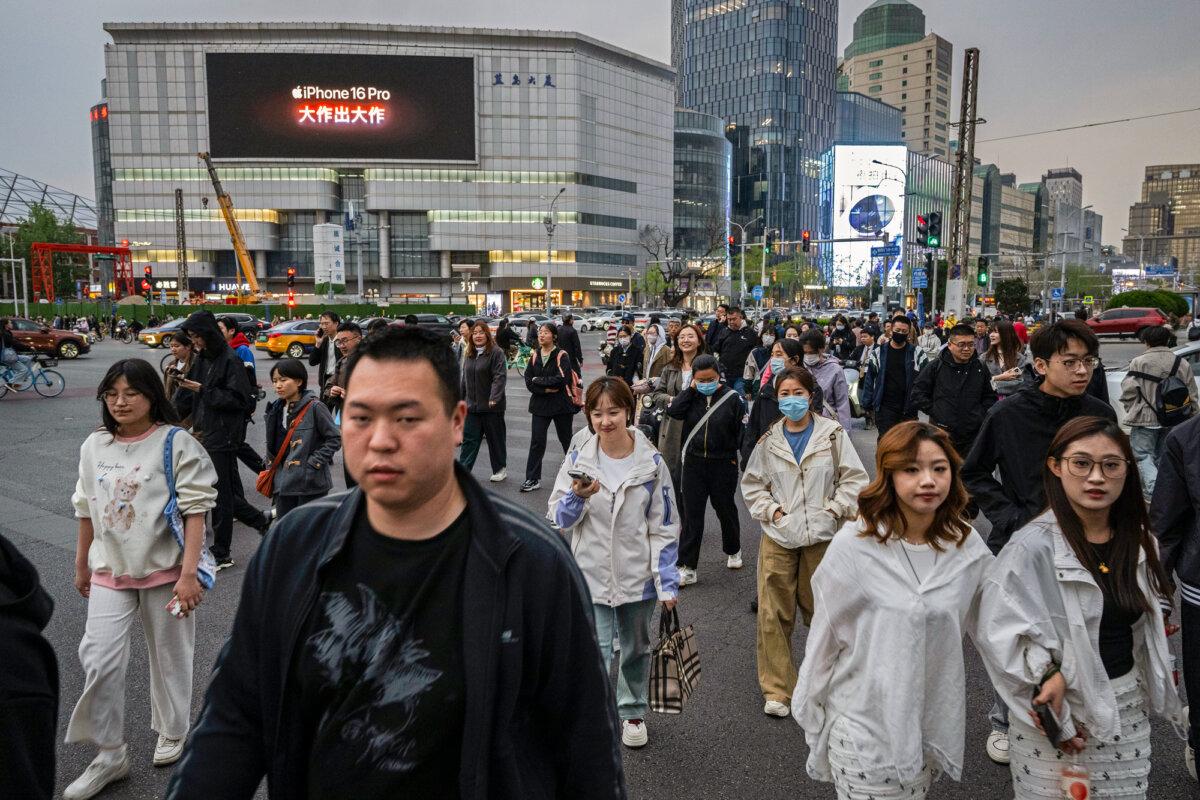Chinese doctors are predicting a major peak of COVID-19 cases in July as the latest data released by Chinese health authorities show that variant NB 1.8.1 is still the main pathogen causing the rapid increase in COVID-19 infections in the country.
Doctors and health professionals across China have continued to report to The Epoch Times that infections, including white lung symptoms, and deaths have been rising in the latest wave of COVID-19, portraying a far more severe situation than what authorities acknowledge.
The main pathogens reported from respiratory samples of influenza-like cases in outpatient and emergency departments of China’s sentinel hospitals were SARS-CoV-2 that causes COVID-19, rhinoviruses that cause the common cold, and enteroviruses that cause respiratory and gastrointestinal illnesses.
The pathogens detected in respiratory samples of hospitalized severe acute respiratory infection cases were mainly SARS-CoV-2, rhinovirus, and respiratory syncytial virus (RSV).
Because of the CCP’s history of covering up information and publishing unreliable data, including underreporting COVID-19 infections and related deaths since early 2020, accounts from local doctors and health workers can offer valuable information for understanding the situation on the ground in the totalitarian country.
Doctor: Major Peak in July
Dr. Liu Kun (who used a pseudonym out of safety concerns), owner of a private Chinese medicine clinic in Hohhot city in Inner Mongolia in northern China, told The Epoch Times that in recent months, the number of COVID-19 patients has increased significantly in both adults and children.
The number of patients seeking traditional Chinese medicine treatment of the disease in his clinic has also increased, he said.
Liu said that the main symptoms are cough and sputum, “and they usually last for a long time, with some patients not recovering for several months.”
Most of the critically ill patients are elderly “but sudden deaths among young and middle-aged people in their 30s to 50s [are] more common,” Liu said.
Based on the current trend and the high transmissibility of the dominant strain, Liu anticipated that this most recent “COVID-19 outbreak will be very serious in July,” and that even “explosive growth is possible.”
Sun Xiansheng (also using an alias out of safety concerns), an epidemic prevention employee in south China, told The Epoch Times in recent days that “according to internal information provided by related government departments, the outbreak of COVID-19 will definitely reach a pandemic level, and based on the current pace, it may start this month.”

People cross at a traffic light in Beijing on April 8, 2025. Kevin Frayer/Getty Images
Mr. Wang, an employee of a hospital in Hefei city of Anhui Province who only gave his last name out of safety concerns, told NTD, sister media outlet of The Epoch Times, that “many school children were infected in groups,” and many of them were found to be severely ill with “white lung,” a symptom that is typically associated with severe infection of COVID-19.
Wang said that “several people around me have developed white lungs. Some have been discharged from the hospital, and some have not. There are young people, students, and people in their 60s and 70s.”
He said that the number of white lung cases, “especially the number of lung nodules, is many times higher than before.” He said it wasn’t seen among students before “but now, it’s found in many students.”
“Lung nodules will turn into pneumonia and lung cancer over time,” he said.
A health blogger in China, who is also an epidemiologist and has some knowledge of the matter, told The Epoch Times in recent days that, according to an internal university research report by Cao Yunlong’s research team at Peking University that has yet to be published, the variants NB.1.8.1 and XFG are spreading rapidly. NB.1.8.1 has achieved a balance between immune evasion and ACE2 affinity, the report stated.
The authors of the report predict that NB.1.8.1 may become the next dominant global strain, with symptoms including razor throat, fever, runny nose, vomiting, and diarrhea.

A laboratory technician works at a Tsinghua University lab in Beijing on Dec. 9, 2021. Noel Celis/AFP via Getty Images
NB1.8.1 has already become the dominant strain in many parts of Asia, including Southeast Asia. Although its pathogenicity has not significantly increased, the long-term effects of the variant deserve attention, Dr. Jonathan Liu, a professor at Canada Public College and director of Liu’s Wisdom Healing Centre, told The Epoch Times on June 14.
“Recently, the infection caused by it is similar to the common cold, which often lasts for a long time. It mainly interferes with the human immune function and causes various strange symptoms,” Dr. Jonathan Liu said.
Luo Ya, Fang Xiao, and Xiong Bin contributed to this report.

